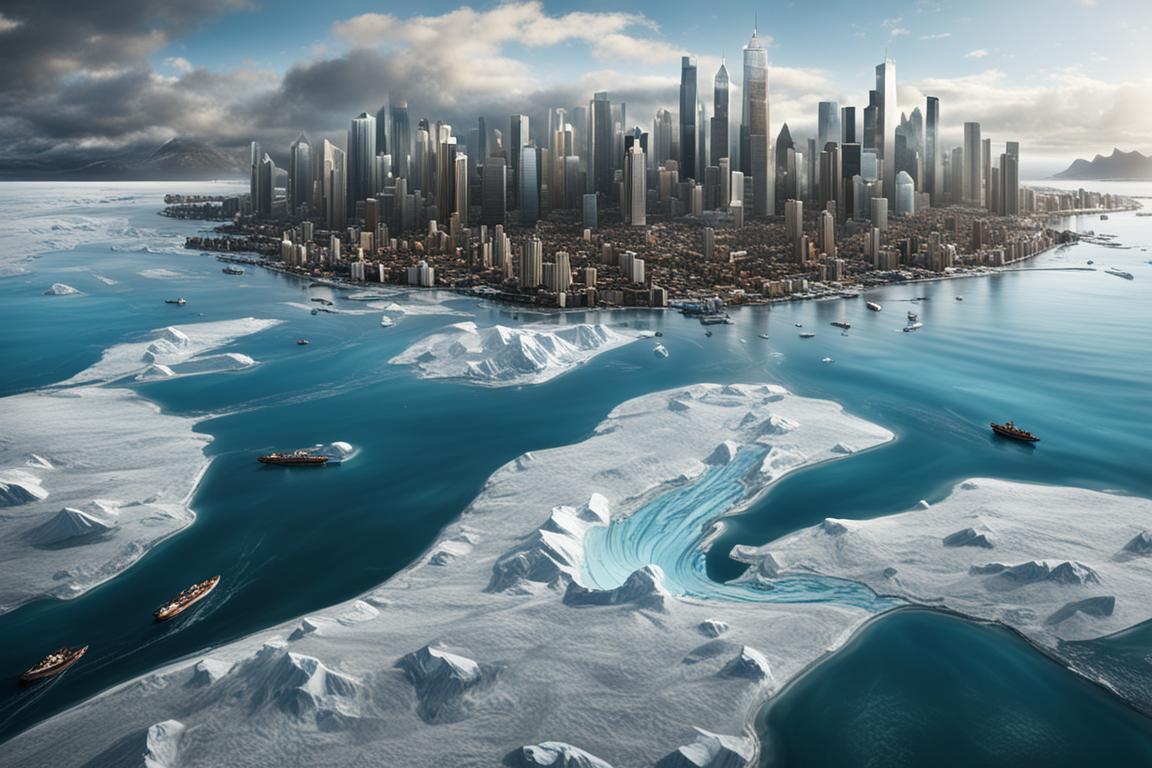
In the mid-21st century, humanity achieved a technological breakthrough that had been the stuff of science fiction for centuries: the ability to control the weather. This unprecedented development came about through the combined efforts of climatologists, engineers, and AI specialists who developed a network of satellites, drones, and ground-based stations capable of manipulating atmospheric conditions.
The WeatherNet, as it was called, used advanced algorithms to analyze weather patterns and make precise adjustments. By deploying aerosols, manipulating pressure systems, and using ionization technologies, WeatherNet could create rain, dissipate storms, and even control temperatures in localized areas. The implications of this technology were profound and multifaceted, transforming society in ways both expected and unforeseen.

The immediate benefits of weather control were significant. Agricultural productivity soared as droughts were eliminated and optimal growing conditions were maintained year-round. Famine and food shortages became a thing of the past, and regions previously uninhabitable due to harsh weather conditions became viable for settlement and cultivation. Farmers could now plan with certainty, knowing that the rains would come exactly when needed and that extreme weather events would no longer devastate their crops.
Urban areas also saw dramatic improvements. Cities plagued by smog and pollution implemented weather control to disperse harmful particulates and improve air quality. Heatwaves and cold snaps were moderated, creating a more stable and comfortable climate for residents. Flood-prone regions no longer feared the devastation of heavy rains, as excess water could be redirected or absorbed into the atmosphere.
However, the power to control the weather also brought significant challenges and ethical dilemmas. The ability to manipulate nature raised questions about the potential consequences of such actions. Environmentalists warned that interfering with natural weather patterns could have unforeseen impacts on ecosystems and biodiversity. The delicate balance of the Earth’s climate system, developed over millions of years, was not fully understood, and there was a risk that tampering with it could lead to unintended consequences.
Political and social tensions also arose. Control over WeatherNet became a point of contention among nations, leading to debates over who should have the authority to decide weather patterns. Wealthier countries, with more resources to invest in weather control technology, began to dominate the system, leading to accusations of “weather imperialism.” Developing nations feared that their climates could be manipulated to favor the interests of more powerful countries, exacerbating global inequalities.
To address these issues, an international regulatory body, the Global Weather Authority (GWA), was established. The GWA was tasked with overseeing the ethical and equitable use of weather control technology, ensuring that its benefits were shared globally and that environmental impacts were carefully monitored. Strict protocols and transparency measures were put in place to prevent abuse and ensure that weather manipulation served the common good.
Despite these safeguards, the potential for misuse remained a concern. Rogue actors, from criminal organizations to rogue states, attempted to hack WeatherNet to create chaos or gain strategic advantages. This led to the development of sophisticated cybersecurity measures and international cooperation to protect the integrity of the system.
As humanity grew more accustomed to controlling the weather, cultural and social changes followed. Festivals and events that had once been at the mercy of the elements could now be planned with perfect weather conditions. Tourism boomed as destinations guaranteed ideal weather year-round. The natural unpredictability of the seasons, which had shaped human culture and traditions for millennia, was replaced by a new era of climate predictability and control.
However, the psychological impact of this new reality was complex. Some people lamented the loss of nature’s wildness and spontaneity, feeling that humanity had lost a fundamental connection to the planet. Others embraced the new stability, grateful for the improved quality of life and the end of weather-related disasters.
In the long term, the ability to control the weather spurred new scientific and philosophical questions about humanity’s role in the natural world. As people became more adept at managing Earth’s climate, discussions about extending this control to other planets began. The potential for terraforming Mars and other celestial bodies opened up new frontiers for human exploration and settlement.

Ultimately, the control of weather marked a pivotal moment in human history. It demonstrated the extraordinary potential of human ingenuity and technology to transform the world. Yet it also underscored the need for humility, caution, and a deep respect for the intricate and interdependent systems that sustain life on Earth. As humanity navigated this new era, the lessons learned from weather control would shape the ethical and practical approaches to future technological advancements, ensuring that progress was balanced with stewardship and responsibility.




